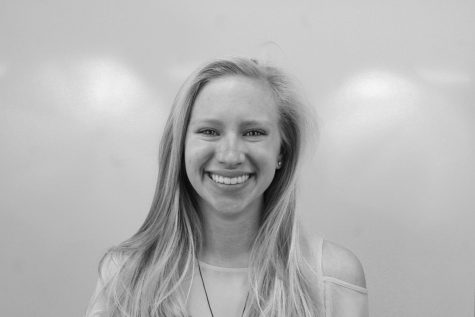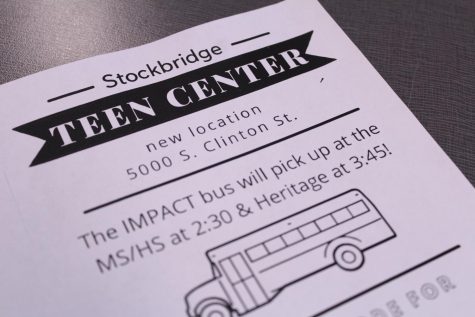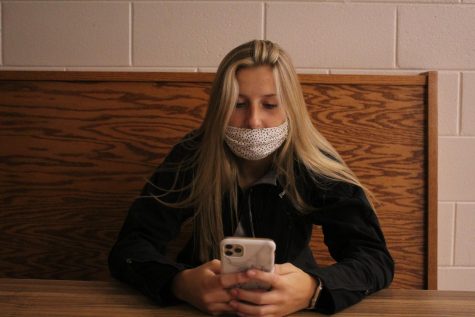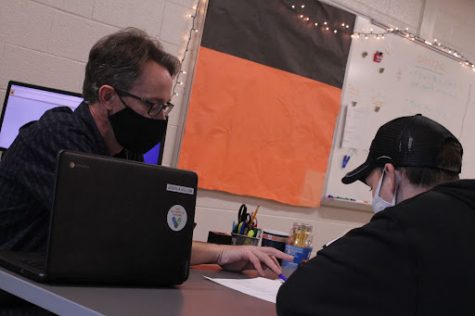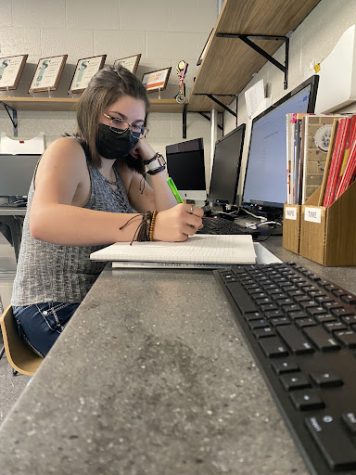OK2SAY provides information about how to leave professional digital footprint

“You are not invisible, and today can be a new beginning,” public speaker Suzy Khoury said to the senior class. OK2SAY provides a comfortable space for students to turn to when they need to find help. After every tip, a report is filled out and acted upon according to michigan.gov, and 67 percent of schools, law enforcement and mental health professionals who received the tip from OK2SAY line said they were previously unaware of the problem.
On January 9, OK2SAY public speaker Suzy Khoury spoke to grades 9-12 about the importance of a having a good digital footprint and the impacts of what each student does on the internet.
“Remember that the digital footprint is something that is always looked at by college administrators,” Khoury said in her speech to the senior class.
Khoury stressed that having a clean digital footprint is essential for the future, whether it be college or a future job, because once a photo, status update or video is posted on the internet, one can never truly erase its presence.
Senior Kaylin Janeski thinks that if a student has a social media account, that student is entirely responsible for posting content that will not get them in trouble, and if she can not figure out a way to control content, she should not have any social media accounts.
“I’ve never done anything that would get me in trouble with an employer that is trying to employ me,” Janeski said. “I’ve never posted something that is against the law or could get me in trouble or anything, and [my digital footprint is] pretty clean. You can always go through and delete things if you want to go clean up your digital footprint, but just because you delete something doesn’t mean that it’s gone. It’s always going to be there, somehow, some way.”
Not only does the OK2SAY program cover what students should be careful about posting on media, but also covers what to do if signs of bullying, self harm, drug abuse, suicide or other forms of harassment and violence arise.

Clarification. Public speaker Suzy Khoury uses an example text for contacting OK2SAY to explain the proper and improper way to submit an anonymous tip. According to Khoury, the text on the screen is good to know, but it lacks the important information that OK2SAY needs to do something about the issue. To submit a tip, the tipper must provide as much information as he or she can, including the names of the people involved, the nature of the threat, the place and the estimated time.
To submit an anonymous tip to OK2SAY, tipsters can call 8-555-OK2SAY, text 652729 (OK2SAY), email [email protected], visit ok2say.com or download the OK2SAY mobile app. OK2SAY is completely confidential and available for contact 24/7. According to michigan.gov, OK2SAY has received 4,605 anonymous tips in 2017 alone.
Khoury and over 25 other presenters for OK2SAY travel all over the state of Michigan to give these presentations every week to speak to parents, staffs and students at summer programs, in libraries, in schools and faith-based venues.
“If you were to combine all these assignments together, it would be up in the thousands,” Khoury said. “It’s something that humbles me and brings joy to my heart that there are a lot of people’s lives and students lives that I think change because they use the empowering message that is in the program that we have.”



